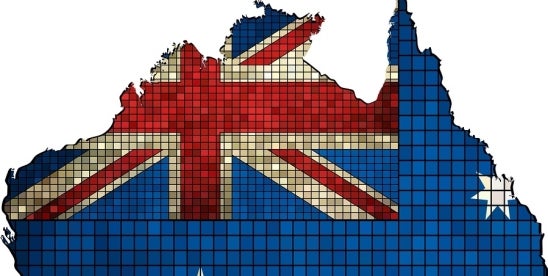In Brief
- The Treasury Laws Amendment (Acquisition as Consumer—Financial Thresholds) Regulations 2020 (Cth) (Regulations) broaden the applicability of the Consumer Guarantees regime under the Australian Consumer Law (ACL).
- From 1 July 2021, the Consumer Guarantees will apply to supplies of goods and services valued up to AU$100,000 (currently AU$40,000), providing greater protection for all consumers, but in particular for business customers (that are more likely to purchase goods and services with a higher monetary value).
- Suppliers who fail to comply with the Consumer Guarantees may face significant liabilities beyond the financial costs of remedying their non-compliance. The conduct of those that fail to comply with these guarantees, together with the statements they make regarding consumers' rights may amount to misleading or deceptive conduct, false or misleading representations or unconscionable conduct.
- Suppliers therefore need to:
- review their terms and conditions to maintain compliance; and
- ensure relevant staff are trained and briefed and that their responses to customer enquiries are compliant with the Consumer Guarantee obligations.
What are the Consumer Guarantees?
The Consumer Guarantees are a set of automatic rights that apply to goods or services supplied to a 'consumer'. There are nine guarantees in relation to goods and three in relation to services, the most significant of which are:
- that goods are of acceptable quality, fit for any disclosed purpose, match their description, and comply with any express warranty; and
- that services are fit for any disclosed purpose, and supplied with due care and skill within a reasonable time.
Compliance is mandatory for suppliers and manufacturers, including importers (where the actual manufacturer does not have a place of business in Australia).
What's Changed and Why?
The Regulations broaden the definition of 'consumer' to mean a person or business who acquires goods or services (on or after 1 July 2021):
- for an amount of up to AU$100,000; or
- that are ordinarily acquired for personal, domestic or household use; or
- that are vehicles or trailers used mainly to transport goods on public roads.
However, the guarantees do not apply to goods acquired for re-supply or use in a production or manufacturing process.
The current monetary threshold is AU$40,000, so the Regulations substantially widen the scope of goods and services subject to the guarantees.
The Regulations were introduced in response to a review of the ACL, which found that business purchases required greater protection, given "small businesses can be as time poor as ordinary consumers and lack the knowledge and expertise about products they buy".
The review recommended increasing the threshold to restore the original level of coverage for business purchases, as the real value of the threshold has been eroded by three decades of inflation. The review's findings and recommendations are reflected in the Explanatory Statement to the Regulations.
The Regulations similarly increase the monetary threshold for the definition of 'consumer' in the Australian Securities and Investments Commission Act 2001 (Cth), which sets out protections for consumers of financial services.
What Does this Mean for your Business?
The Regulations take effect from 1 July 2021, giving businesses time to prepare if they believe goods or services they supply may become subject to the consumer guarantees.
This relatively long lead time, combined with the fact that the guarantees are one of the ACCC's 2020 enforcement and compliance priority areas (with ACCC Chair Rod Sims describing them as "the number one issue that the ACCC … [has] to deal with"), means the ACCC is likely to take swift enforcement action to ensure compliance.
Below we set out some of the key risks and related actions that you should consider.
Review and update your terms and conditions
Any term of a contract that attempts to exclude, restrict or modify the application of the guarantees is void. This includes a term that expressly tries to do so or is otherwise inconsistent with the guarantees.
You should consider whether any terms and conditions of sale or supply (including refunds and returns policies) need to be updated to comply with the guarantees.
The guarantees are a consumer's minimum rights - they apply in addition to any other express warranties, manufacturer's warranties or dealer's extended warranties which you may offer. The ACL also prescribes certain wording to be included in warranty documents, with new wording requirements introduced in June 2019.
Limit your liability, lawfully
While you cannot 'restrict' your liability for failing to comply with a guarantee, the ACL allows suppliers to limit their liability where goods and services are not ordinarily acquired for personal, domestic or household use to one or more of the following:
- for goods - to the replacement or repair of, or the cost of replacing or repairing, the goods; and
- for services - to the resupply of, or the cost of resupplying, the services.
However, these limitations do not apply if it would not be fair or reasonable to rely on them. You therefore need to review your terms and conditions to ensure that any limits on liability are lawful.
What are the remedies for consumers if you fail to comply?
The ACL gives consumers a set of remedies if a supplier fails to comply with the guarantees. The remedy the consumer receives depends on whether the supplier's failure to comply is a 'minor failure' or a 'major failure'.
A failure is a major failure if, among various other factors, a reasonable consumer would not have acquired the goods or services if they knew of the failure. All other failures are minor failures.
If the failure is a minor failure, the supplier can choose to replace, refund or repair the goods. For major failures, the consumer can choose to have the supplier replace, refund or repair the goods, or to keep the goods and claim compensation for their reduced value.
However, the Productivity Commission is currently considering changes to strengthen the right of repair, following concerns that a lack of necessary parts makes it impossible or impracticable for consumers to exercise their rights.
Consumers and resellers can also claim compensation against suppliers further up the supply chain or manufacturers for consequential loss resulting from a failure to comply with a consumer guarantee, provided the loss is reasonably foreseeable.
Ignorance is risk
The Consumer Guarantees interact with a number of other protections under the ACL, potentially compounding liability for non-compliance, including as follows:
- The ACL prohibits making false or misleading representations about the existence, exclusion or effect of any condition, warranty, guarantee, right or remedy - including the consumer guarantees (this may also be misleading or deceptive conduct).
- Systemic denials of or a policy of denying consumers their rights under the guarantees may amount to unconscionable conduct. The ACCC brought proceedings against Mazda in October 2019 on exactly that basis, alleging that Mazda repeatedly refused to refund or replace faulty vehicles at no cost and pressured consumers to accept lesser offers.
- Terms that interfere with consumers' rights under the Consumer Guarantees may be declared void as unfair contract terms. Although currently there are no penalties for unfair contract terms, a ministerial review may change this.
The penalties for misleading representations and unconscionable conduct are substantial. The maximum penalty per contravention for a corporation is the greater of AU$10 million, three times the value of the benefit attributable to the breach, or 10% of annual turnover.
This means that businesses, especially their customer service and complaints staff, need to be aware of the guarantees - to avoid the risk of misrepresenting to consumers whether or not they apply, and to ensure their policies are compliant.
Connor McNamara contributed to this article.




 />i
/>i

